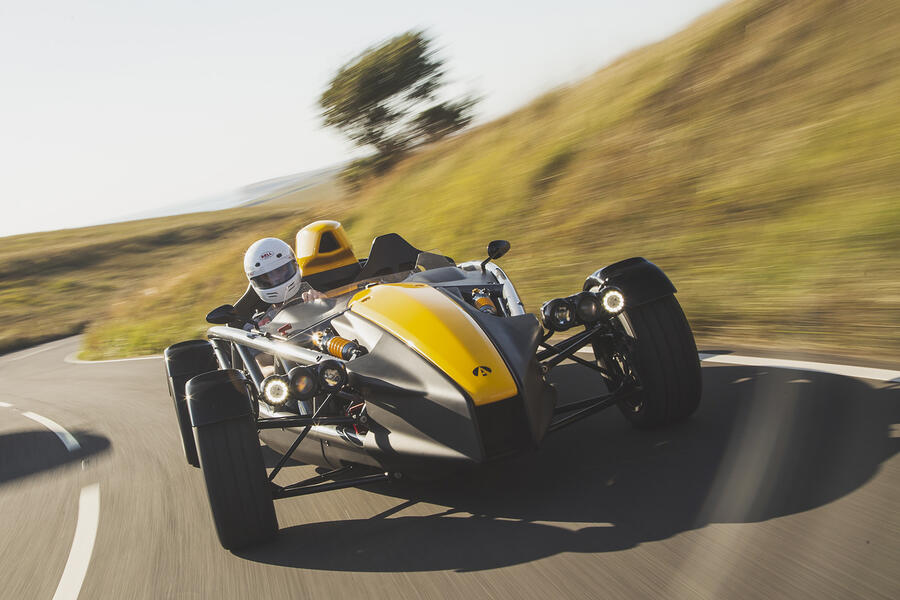Last week, the European Commission outlined a set of proposals that will bring new car sales rules across its 27 member states broadly into line with the UK’s targets. That means drastically reducing average emissions by 2030, with certain plug-in hybrids allowed to stay on sale until 2035, after which everything sold must be electric.
Almost everything, anyway. What, though, of the niche manufacturer? Those that make only a few sports cars, are beholden to bigger firms for their technology and don’t have enough cash to make the shift early?
Such companies often make cars for which lightness and engagement and effort are key to the appeal – instant classics whose character doesn’t suit current battery-electric technology. The UK, as SMMT boss Mike Hawes noted last week, is “blessed” with them.
Earlier EU proposals said small-volume car makers (meaning those selling 1000 to 10,000 cars per year across the bloc) could apply for an exemption. Under these proposals, they won’t be able to do so as of 2030.
It’s not explicit, but I think this does exempt makers selling fewer than 1000 cars per year. The UK government’s green paper on upcoming vehicle CO2 regulations, also released last week, certainly does exempt “micro manufacturers”.
Cars that go through the UK’s Small Series Type Approval or Individual Vehicle Approval are “out of scope of the regulation” (as are many special-purpose vehicles).
Zero tailpipe emissions is a tech shift, then, that a niche manufacturer can decide to take on – Ariel says “the thought of an e-Ariel doesn’t frighten us at all” – but won’t be forced to. (Although I imagine that most will, at their own pace, once the tech is light enough and engines are scarcer.)







Join the debate
Add your comment
The UK governmennt are now saying that they plan to stop the ICE being sold by 2030. That subtle change in wording means it may not happen. Certainly unless they sort out the charging infrastructure and battery technology makes huge leaps it will not happen then. Who wants to hang around waiting for 40 minutes whilst your car charges to 80% battery. The fast charging kills batteries sooner so if you continually fast charge yours,then expect a massive bill for a new one. EV s are only really a stop gap anyway until hydrogen fuel cells become the norm. Why waste money on EVs?
This obession with petrol engines being the soul of a car is so 'boomer'! Many many engines are already shared across multiple cars and platforms anyway. As bol states, it will force the focus on handling, ride, comfort, feedback etc. Manufacturers can develop interesting electric approaches, do you have 1 lightweight rear drive motor that relies on the driver to balance the steering or a motor on each wheel so the driver can just throw it into any corner and let the system sort it out! I'll miss the sound of a V10 on full power but I look forward to the future more.
It throws all the emphasis back to feel, handling, size and weight. Let's be honest, how many have got a proper manual gearbox now? I don't think most people will miss it half as much as they think. In terms of sound, I think a trick has been missed so far in tuning the sound of the electric motors. They can be quite visceral when they're really screaming.